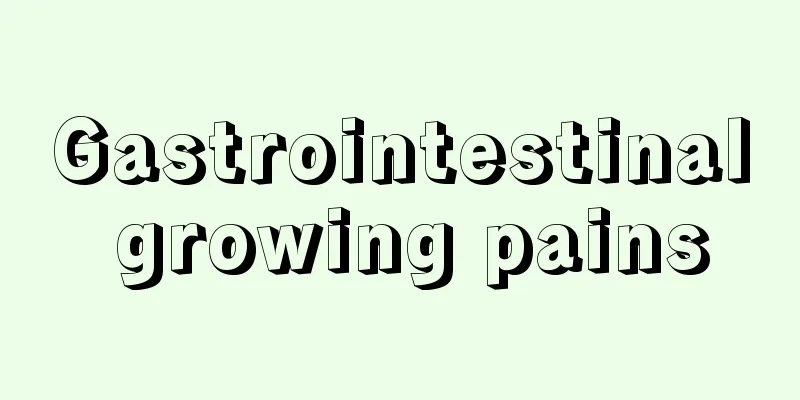Identify these clues to help you prevent "stomach"

|
Upper abdominal discomfort, dull pain, fullness after meals, loss of appetite, fatigue... Many people would think it is indigestion, gastritis or peptic ulcer, and go to the pharmacy to buy stomachic and digestive medicine to solve the problem. But what you don't know is that it is just hiding the symptoms. The real focus is still growing quietly. These symptoms may be early signs of gastric cancer, which are alarm bells from your body. We should learn to distinguish these small signals from the body, detect the disease early, and have hope of cure only if we diagnose and treat it early. So, how to reduce the possibility of stomach cancer? Diet. Salted and fumigated products contain nitroso compounds and polycyclic aromatic hydrocarbons, which are carcinogens and will undoubtedly increase the risk of cancer. In addition, high salt intake may also increase the risk of gastric cancer. This is because high concentrations of salt can damage the gastric mucosa. Reduce the consumption of pickled and smoked products, eat a low-sodium diet, pay attention to those invisible high-salt foods, such as chicken essence, plums, bread, pasta, cakes, etc., and eat more fruits and vegetables, soy products, milk, garlic, and increase the intake of folic acid and vitamin A. Helicobacter pylori. The high incidence of Helicobacter pylori infection in my country is related to our traditional eating habits. It is difficult for us to implement a separate dining system. Helicobacter pylori produces urea during metabolism, which reduces the acidity of the local environment of the gastric mucosa, leading to inflammation of the gastric mucosa, causing damage, and causing hyperplasia of the gastric epithelium, thereby increasing the carcinogenic effect of carcinogens. The possibility of Helicobacter pylori infection causing gastric cancer is nearly ten times that of uninfected people. A large sample study in mainland China showed that eradication of Helicobacter pylori can reduce the incidence of gastric cancer by 39%, so active treatment should be initiated after Helicobacter pylori infection is discovered. Monitor precancerous lesions. Studies have shown that the detection rate of chronic atrophic gastritis is positively correlated with the mortality rate of gastric cancer, intestinal metaplasia is positively correlated with the occurrence of gastric cancer, and precancerous lesions are closely related to the occurrence of gastric cancer. Therefore, the monitoring of precancerous lesions of gastric cancer is very important. Recommendation: Patients with atrophic gastritis without intestinal metaplasia or dysplasia can be followed up every 1 to 2 years. Patients with moderate to severe atrophy or intestinal metaplasia of atrophic gastritis should be followed up about once a year. According to the endoscopic and clinical conditions, patients with mild atypical hyperplasia should shorten the follow-up time and follow up every 6 months or so. Secondly, patients with severe dysplasia need to immediately review the gastroscopy and pathology, and undergo surgical treatment or endoscopic local treatment when necessary. Screening of high-risk patients. Patients at high risk of gastric cancer: over 60 years old; moderate to severe atrophic gastritis; chronic gastric ulcer; gastric polyps; huge gastric mucosal folds; residual stomach after surgery for benign diseases (10 years after surgery); residual stomach after surgery for gastric cancer (10 years after surgery). Cancer (6-12 months after surgery); Helicobacter pylori infection; family history of gastric or esophageal cancer; pernicious anemia. These high-risk patients should undergo regular gastroscopy examinations as recommended by their doctors. Of course, in addition to the high-risk patients mentioned above, young people who seem healthy at ordinary times also need to pay more attention. Under high-intensity work and irregular lifestyle, the body is actually in a "sub-healthy" state. However, if the following symptoms occur, you should go to the hospital for examination in time. For example, upper abdominal pain; loss of appetite; gastrointestinal bleeding; unexplained weight loss, fatigue, vomiting In short, stomach discomfort should not only be treated as indigestion or gastritis, but it is best to go to the hospital for further examination to prevent future occurrences. |
<<: Gastrointestinal cancer: these signals from the body must not be ignored
>>: Swimming reduces the risk of prostate cancer in men
Recommend
Where does pelvic inflammatory disease hurt?
Pelvic inflammatory disease is a common gynecolog...
What teas are good for the eyes
Nowadays, many people use their eyes heavily, whe...
How to prevent lumbar disc herniation?
Nowadays, the pressure in our lives is very high....
Is cervical cancer a genetic disease?
Is cervical cancer hereditary? We all know that t...
What are the symptoms of early liver cirrhosis
The liver is the largest detoxification organ in ...
Symptoms of dampness and toxicity, patients with dampness and toxicity cannot delay
When it comes to dampness and toxins, many people...
What is glycocholic acid checked for
When it comes to the word glycocholic acid, many ...
The small pit under the front bone of the calf
The phenomenon of a small depression on the front...
Traumatic injury swelling reduction
In daily life, bruises and injuries are very comm...
How to clean a black pot bottom
Sometimes the bottom of the pot is too black and ...
What are the benefits of good sleep?
For humans, sleep is a necessity of life and it o...
There is a crack in my front teeth
Some people's teeth are very sensitive and th...
How long can you live with chest bone cancer
The survival period of thoracic bone cancer varie...
How to put on contact lenses quickly
When putting on contact lenses quickly, you gener...
What should you pay attention to in your diet during chemotherapy for lung cancer? What principles should you follow in your diet during chemotherapy for lung cancer
Constipation is a common problem during chemother...









